Mark Jensen
Australia
MQT series pneumatic bolting rig products have high torque, high speed, high power, and the outrigger lifting adopts the form of double exhaust structure to make the outrigger lifting more flexible and reliable. The unique sound-dampening structure allows you to use it for a long time without worrying about the power drop caused by icing.
MQT-130/3.2 This product has I.II.III. three specifications, and all models have B19 and B22 two drill tail coupling forms for you to choose. The machine adopts the water and gas valve structure manufactured by the new process, which makes it have a longer service life, a smaller failure rate, and a more flexible and reliable operation. On the basis of not reducing the strength of the whole machine, a large number of relatively light alloy materials are used, so that the weight of the whole machine is reduced by about 15% compared with the original, and the handling strength of the underground is effectively reduced.
It is widely used in the roadway with rock hardness ≤ F10, especially suitable for the bolt support operation of the coal roadway, which can not only drill the roof bolt hole, but also drill the anchor cable hole, and can also stir and install the resin medicine roll anchor rod and anchor cable, without other equipment, the bolt nut can be installed and tightened at one time, and the initial anchor preload requirements can be achieved.
Product features: small size, light weight, simple operation, easy maintenance. Geared air motor, stable operation and high reliability; The new FRP air leg design has high reliability and longer service life.
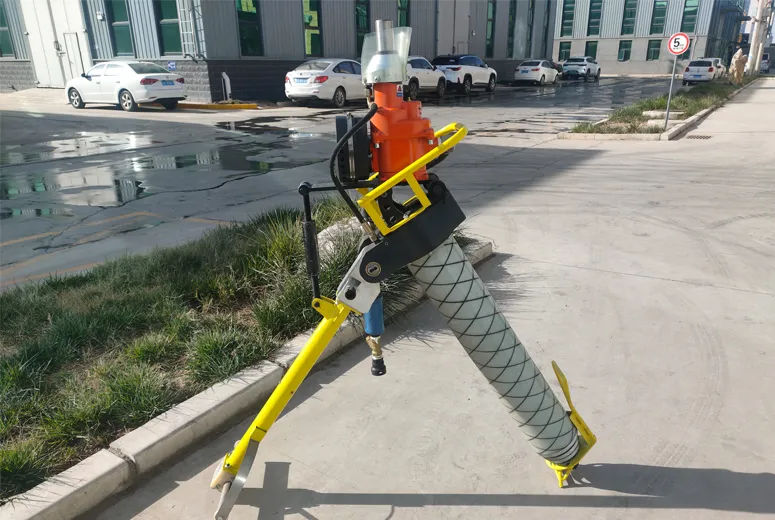
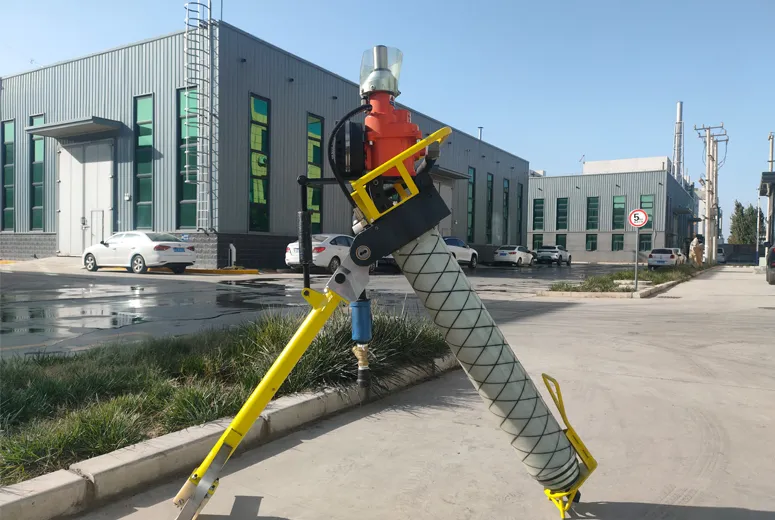
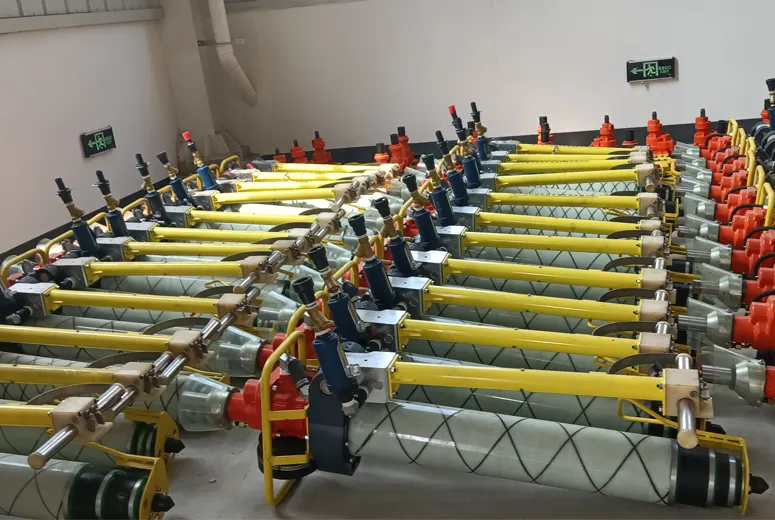
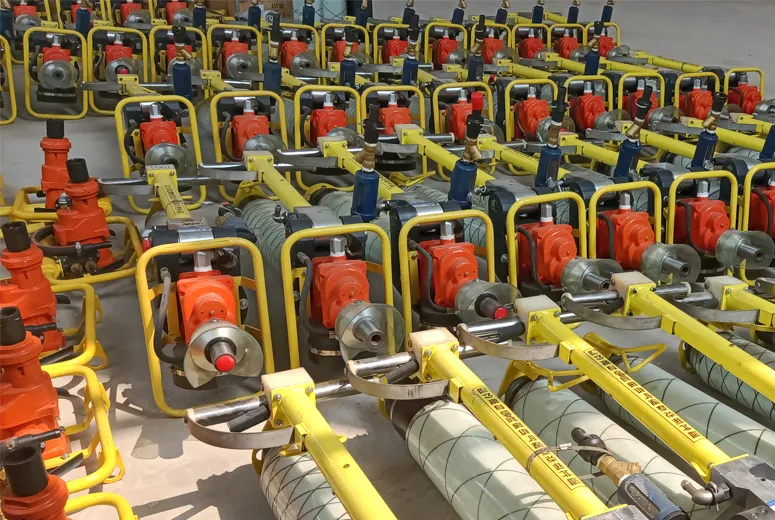
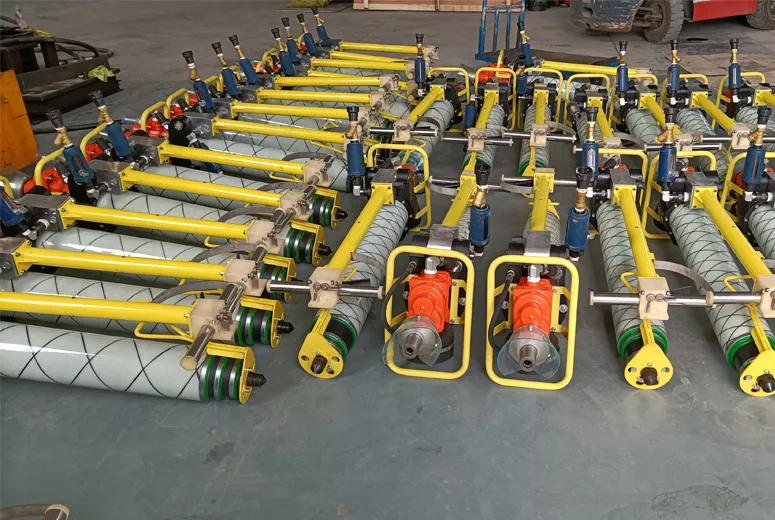

In underground mining and tunnel reinforcement, the precision and reliability of bolting equipment directly influence both structural safety and operational efficiency. Modern bolting rigs, such as those engineered by Hebei Fikesen Coal Mine Machinery Manufacturing Co., Ltd., are designed to meet these demands through a combination of robust hydraulic systems, high-accuracy drilling components, and adaptable control mechanisms. Among these, the pneumatic rig and pneumatic drill rig configurations are widely used for their adaptability in different geological formations and their ability to deliver consistent drilling power without excessive vibration.
The structural design incorporates a rigid frame with optimized weight distribution to maintain drilling stability, even when operating on uneven rock surfaces. This stability minimizes deviation in drill hole alignment, ensuring that anchor bolts are positioned exactly as specified in engineering plans. For large-scale operations requiring mobility, a pneumatic crawler drill offers the added benefit of maneuvering across rough terrain while maintaining precise positioning.
Advanced rigs now feature proportional hydraulic control, allowing operators to fine-tune feed pressure and rotation speed. This is particularly important when working with varying strata compositions, where softer rock may require reduced torque, while harder geological layers demand higher power output. To further enhance precision, many models integrate laser or sensor-assisted alignment tools, enabling consistent hole depth and diameter without repeated manual checks.
The choice of drilling tools also plays a key role. Hardened alloy drill bits with wear-resistant coatings prolong service life and maintain sharp cutting edges, reducing downtime for replacements. Additionally, quick-change tool adapters shorten transition time between different bit types when geological conditions shift unexpectedly. The rigs’ modular design allows for different mast lengths and feed beam configurations, making them suitable for both confined tunnel environments and larger mining chambers.
From a production standpoint, Hebei Fikesen’s ISO9001-certified manufacturing process ensures that each unit meets strict dimensional tolerances and hydraulic system performance benchmarks. This precision engineering translates into consistent bolt tensioning results, reduced material waste, and higher overall productivity in underground operations.
The role of bolting systems in tunnel construction extends beyond simple reinforcement—they are essential in preventing collapses, controlling deformation, and maintaining safe working environments. In this context, advanced bolting solutions developed by Hebei Fikesen leverage both mechanical efficiency and adaptability to varying geological conditions. Whether the application involves coal mine roadways, hydroelectric tunnel linings, or slope stabilization, these machines are built to deliver consistent, high-strength anchoring.
Key to this performance is the integration of high-output hydraulic or pneumatic drilling systems capable of maintaining rotational stability under continuous load. The rock bolting rig and rock bolting machine configurations excel in these environments, offering the capability to install bolts at precise angles, even in tight tunnel spaces. For specialized applications, such as working in fractured rock zones, a rock bolt drilling machine can provide higher penetration rates and improved borehole quality, ensuring maximum anchoring strength.
Adjustable feed systems enable drilling at precise angles, which is critical in complex tunnel geometries where clearance is limited. In challenging ground conditions, such as fractured rock or high-moisture zones, specialized drilling fluids and flushing systems help maintain borehole integrity and prevent clogging. Advanced sealing devices ensure that resin or grout is evenly distributed within the drilled cavity, maximizing the load-bearing capacity of each bolt.
From a safety perspective, the rigs incorporate protective guards, low-noise operation modes, and emergency shut-off features. These not only meet industrial safety standards but also improve operator comfort and reduce fatigue during extended shifts. By combining automation-ready control systems with rugged construction, Hebei Fikesen’s bolting rigs contribute directly to faster project timelines and lower maintenance costs—without compromising tunnel stability.
Mining and tunneling environments impose extreme demands on equipment, with constant exposure to dust, vibration, moisture, and abrasive rock surfaces. Bolting rigs designed for such conditions must prioritize durability without sacrificing operational efficiency. At Hebei Fikesen, this begins with the selection of structural materials—high-strength steels with stress-relief heat treatments are used for frames, masts, and feed beams, ensuring resistance to both bending and fatigue over prolonged use.
For anchoring applications, both the anchor drilling machine and rock anchor drilling machine are engineered with reinforced drive systems and protective sealing to operate in abrasive and high-moisture environments. In situations where installation speed is critical, the self drilling rock anchor method allows simultaneous drilling and grouting, reducing installation time while maintaining anchoring strength.
Wear-intensive components such as drill heads, feed slides, and rotation units are reinforced with hardened bushings and replaceable wear pads, allowing operators to perform quick part swaps without dismantling the entire system. Hydraulic hoses are routed through protective sleeves and fitted with high-pressure couplings that can withstand repeated flexing and temperature fluctuations. Sealing systems are specifically designed to prevent dust ingress into critical moving parts, reducing the risk of premature failure.
The rigs’ modular construction not only aids in customization but also simplifies maintenance workflows. Operators can access service points from ground level, reducing downtime and improving safety during repairs. Built-in diagnostic sensors monitor oil pressure, motor temperature, and drilling torque, alerting technicians to potential issues before they escalate into major breakdowns.
By combining rugged engineering with maintainability, Hebei Fikesen’s bolting rigs are capable of delivering long service lives with minimal unplanned downtime—ensuring that underground projects remain on schedule even in the harshest working conditions.

Mark Jensen
Australia

Carlos Romero
Chile

Liam O’Connor
Canada

Anna Müller
Germany